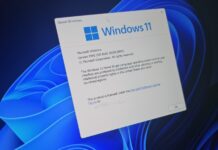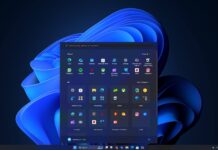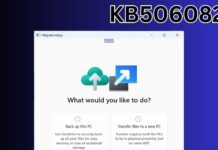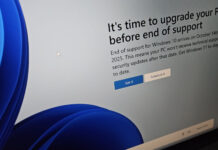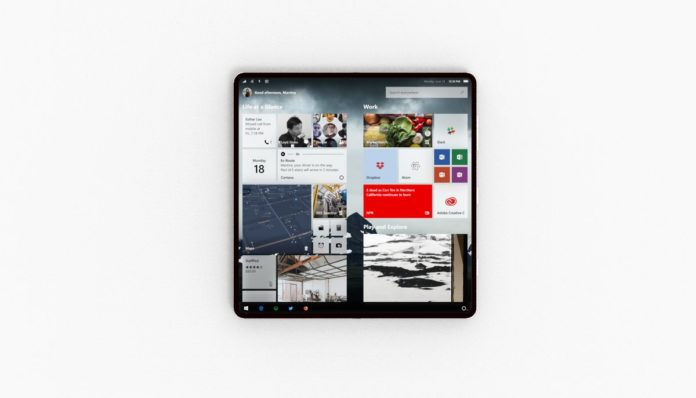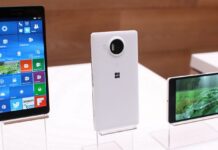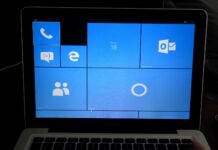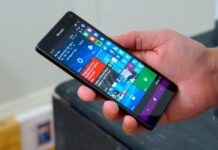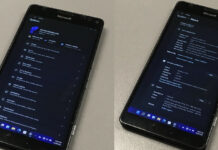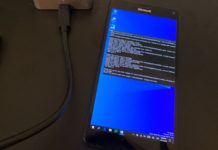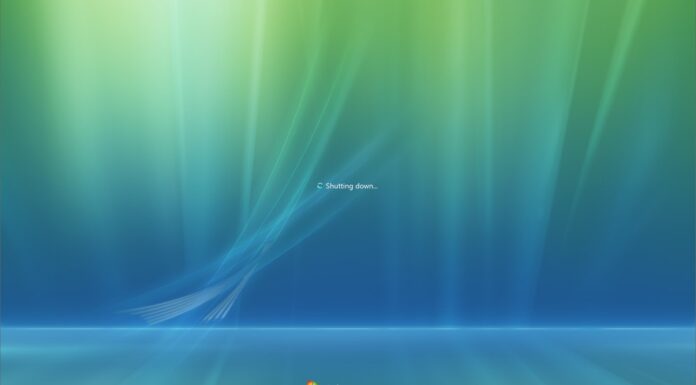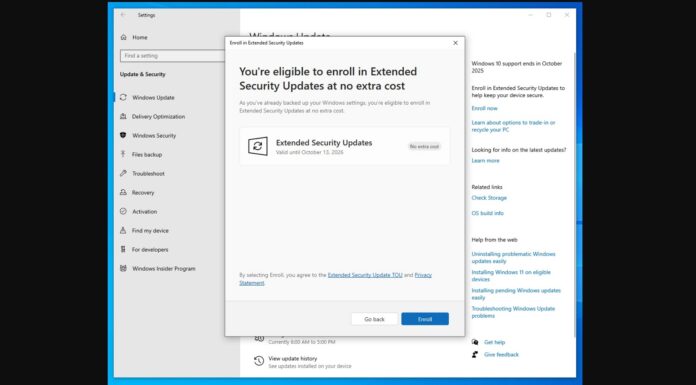According to various reports, Microsoft and its partners are trying to make folding devices relevant. The Redmond giant is working on the long rumoured foldable Centaurus which is expected to benefit from OneCore, Windows Core OS / LiteOS and modular elements.
Microsoft has applied for multiple patents to turn the foldable mobile device into a reality. As per a new patent application that has been approved by the patents department, Microsoft has a new vision for its dual-screen Windows 10. The patented device has advantages over mobile platforms that are trying to do more desktop-like computing, thanks to Microsoft’s new vision.
First spotted by us, the patent titled MOBILE SMART DEVICE WITH INTEGRATED DAWN SIMULATION was filed by Microsoft in late 2017 and published by USPTO on July 4, 2019.
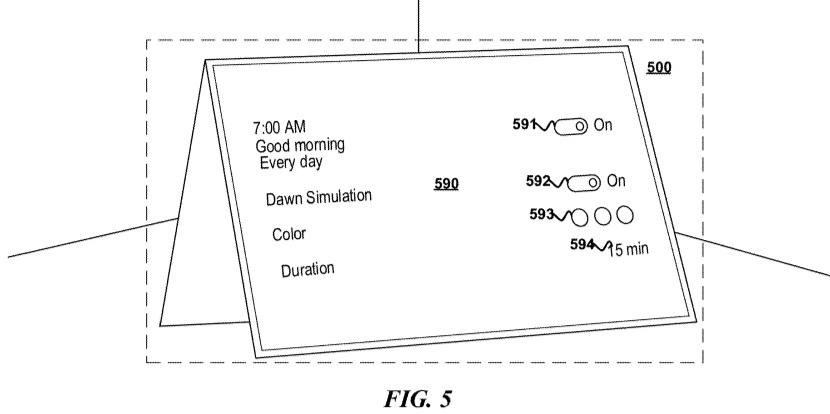
Microsoft patent shows off a foldable device with dawn simulation technology, which according to the patent, involve timing lights in the bedroom to come on gradually, over a period of 30 minutes to 2 hours, before awakening. Dawn simulation may support morning cortisol response and it may also help balance melatonin.
The patent details the dual-screen device with dawn simulation feature and a controller is configured to cause the first screen to operate as a clock display.
The first portion or the first screen of the dual-screen assembly also offers a variety of features such as email, music, video, a calculator function, a calendar function, a voice memo function, and more.
“In one example of the technology, a device includes a first screen, a second screen, and a controller. In some examples, the second screen is physically coupled to the first screen, and is facing a different direction than the first screen,” Microsoft explains.


